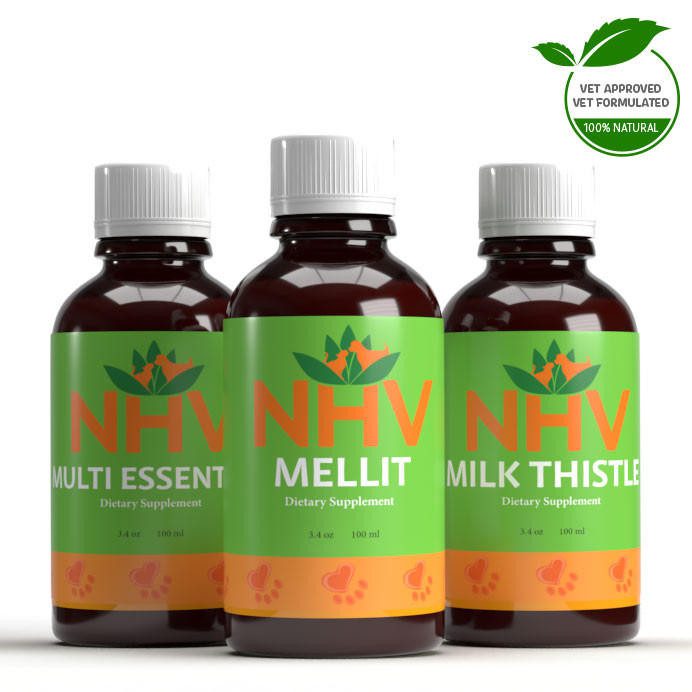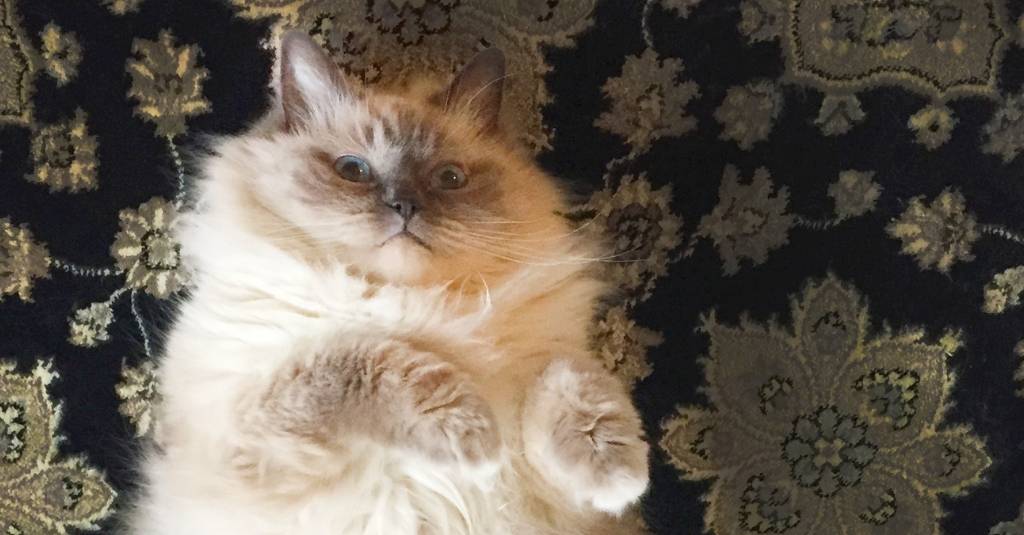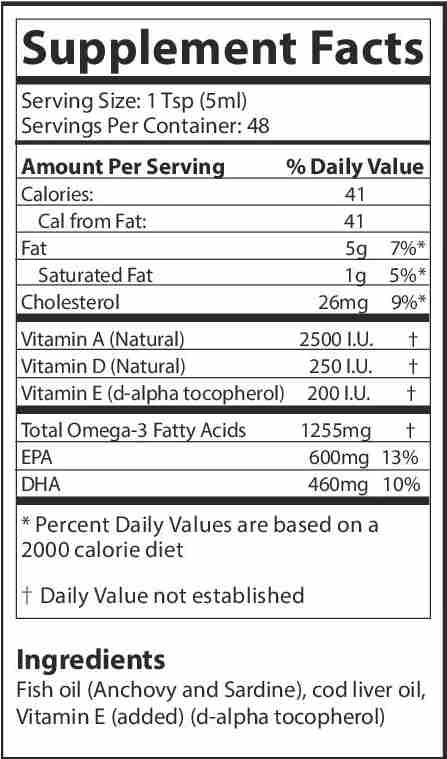diabetes support

free shipping over $100 (USA & Canada)
1-877-937-4372 the pet expert hotline


Many times in our veterinary practice, we see middle-aged cats or dogs who are brought in because of concerns with their excessive thirst and frequent urination. Although these symptoms can be due to other disease processes, it is a classic sign of diabetes in pets. If your cat or dog is exhibiting these symptoms, ask your vet to perform blood work and urine tests to accurately diagnose the problem.
Diabetes in cats and dogs is a chronic disorder of carbohydrate metabolism, which is caused by an insulin deficiency or insulin resistance. Two common attributes for all our diabetic patients are overeating and obesity. Other signs of diabetes (in addition to excessive thirst and urination) are poor skin and coat conditions. In the later stages of diabetes, cats and dogs become very lethargic and actually lose their appetite. Left untreated, diabetes can lead to cataracts, blindness, enlarged liver, bladder, or kidney infection, renal disease, and a negative impact on other organs.
Diabetes in cats and dogs is a chronic disorder of carbohydrate metabolism, which is caused by an insulin deficiency or insulin resistance.
Diabetes affects cats and dogs differently. Cats commonly have type 2 diabetes (the most common form of diabetes in humans). Type 2 diabetes in cats is the result of insulin resistance, which is often linked to diet and obesity. Diabetes in cats occurs in all feline breeds equally and in both males and females.
Dogs, on the other hand, commonly develop type 1 diabetes, which is the inability of the pancreas to produce insulin. Female dogs have been known to develop gestational diabetes during pregnancy. There is no evidence that dogs develop type 2 diabetes. Breeds such as Miniature Poodles, Dachshunds, Schnauzers, Cairn Terriers, and Beagles are particularly prone to developing diabetes (though any breed can be affected). As well, dogs with endocrine diseases such as Cushing’s disease or thyroid disease are more likely to develop diabetes.
Treatment for diabetes in cats and dogs involves a combination of weight loss, diet, insulin injections, and/or natural and holistic remedies.
With insulin, there are many different products available for both cats and dogs. Since individual responses vary with insulin, finding the right product for your cat or dog may require experimentation. Each insulin product varies in terms of onset, peak, and duration of action. Once insulin is started, frequent monitoring is recommended with blood tests. Sometimes monitoring your pet’s blood sugar level will require your cat or dog to spend the day at a vet hospital to acquire a blood glucose curve, while other tests require a short office visit. At-home monitoring, including checking urine and blood glucose is also recommended.
Herbal therapy, such as NHV Mellit will help manage blood sugar levels. Fish oils are very important in coat and immune health. NHV offers PetOmega 3, which provides an excellent source of omega 3 fatty acids. Omega 3 fatty acids are good for decreasing insulin sensitivity, reducing insulin resistance, and the antioxidant in omega 3 helps reduce plasma free radicals and insulin levels in both cats and humans. For herbal therapy, we would also recommend using the NHV Milk Thistle for liver support and NHV Yucca for digestion, appetite, and discomfort management.
Diet is very important in treating diabetes in your pet. If your pet is overweight, you will need to help them lose weight gradually. For cats, your veterinarian can help you with a safe weight loss nutrition program that is high in protein, low in carbohydrates and specifically tailored for diabetes. Switch your cat’s feeding routine from “free choice feeding” to twice daily feeding. A dog’s diet does not necessarily need to be tailored for diabetes but should be tailored to any other disease they may have, or be generally wholesome.
Ideally, your diabetic cat or dog will need to be fed half their daily food requirement at the time of each insulin injection. If using NHV Mellit as an herbal dietary supplement for diabetes, give your pet the appropriate dosage for their body weight 15 minutes before feeding time.
We hope the above information will be helpful for you and your cat or dog. If your cat or dog has diabetes and you would like us to personally look into your unique case, we offer holistic veterinarian consultations through NHV. You can also click on the button below to contact our NHV Pet Expert for any questions about pet diabetes you may have.
diabetes support

Mellit, Milk Thistle & Multi Essentials
bundle and save with pet expert kits
3 month supply for a small to medium size pet.
Combat Diabetes in your pet with all-natural supplements formulated to ease symptoms, support your pet's recovery and improve their overall health. The Diabetes Kit with Metabolism Support contains NHV Multi Essentials, a complex formula that helps your pet's metabolism, while providing nourishment with plant derived vitamins and minerals.


Combat Diabetes in your pet with all-natural supplements formulated to ease symptoms, support your pet's recovery and improve their overall health. The Diabetes Kit with Metabolism Support contains NHV Multi Essentials, a complex formula that helps your pet's metabolism, while providing nourishment with plant derived vitamins and minerals.

To be taken twice daily. Determine your pet’s weight and then use the easy chart below to determine the correct dose. This is the minimum dosage.
Pet's Weight Dosage
0 - 15 lb = 0.5 ml
16 - 30 lb = 1.0 ml
31 - 45 lb = 1.5 ml
46 - 60 lb = 2.0 ml
61 - 75 lb = 2.5 ml
Over 75 lb = 3.0 ml
How to Administer
Shake well before use. The easiest method is to use the dropper provided and place the drops into your pet’s food or favorite treat. You can also use the dropper and squirt directly into the pet’s mouth. Some pets can be finicky, if this occurs consider hiding the drops in foods most pet’s love such as fish, chicken or yogurt or a favorite treat. If your pet only eats dry food then soak a few kibbles at feeding time.
For Best Results
Herbal dietary supplements are beneficial to the health and well-being of your pet and are safe for long-term use. Every pet responds to natural herbal supplements differently, therefore it is important to be consistent and administer the product daily. Supplements generally take two to four weeks to take effect, however this will vary from one animal to the next.
Product Storage
All NHV Natural Pet Products are pure herbal extracts and contain no artificial additives, preservatives or coloring. Shelf life after opening is 6 months and must be refrigerated after opening.
All information provided by NHV Natural Pet Products is for educational purposes only.
Select your pet's weight to determine the correct dose.
With aging, metabolism becomes slower over time. Pets are considered senior at 7 to 9 years of age. This is usually when we would expect to see some degree of changes, though this can vary greatly.
The Multi Essentials in this kit may help to stimulate metabolic function.
Mellit is our main diabetes support supplement.
Our supplements may help the body to regulate enough to discontinue insulin. However, this should only be done with strict monitoring and instructions from your veterinarian. Taking a pet off of insulin without veterinary advice may be life threatening if not done properly.
To be taken twice daily. Determine your pet’s weight and then use the easy chart below to determine the correct dose. This is the minimum dosage.
Pet's Weight Dosage
0 - 15 lb = 0.5 ml
16 - 30 lb = 1.0 ml
31 - 45 lb = 1.5 ml
46 - 60 lb = 2.0 ml
61 - 75 lb = 2.5 ml
Over 75 lb = 3.0 ml
How to Administer
Shake well before use. The easiest method is to use the dropper provided and place the drops into your pet’s food or favorite treat. You can also use the dropper and squirt directly into the pet’s mouth. Some pets can be finicky, if this occurs consider hiding the drops in foods most pet’s love such as fish, chicken or yogurt or a favorite treat. If your pet only eats dry food then soak a few kibbles at feeding time.
For Best Results
Herbal dietary supplements are beneficial to the health and well-being of your pet and are safe for long-term use. Every pet responds to natural herbal supplements differently, therefore it is important to be consistent and administer the product daily. Supplements generally take two to four weeks to take effect, however this will vary from one animal to the next.
Product Storage
All NHV Natural Pet Products are pure herbal extracts and contain no artificial additives, preservatives or coloring. Shelf life after opening is 6 months and must be refrigerated after opening.
All information provided by NHV Natural Pet Products is for educational purposes only.
Select your pet's weight to determine the correct dose.
With aging, metabolism becomes slower over time. Pets are considered senior at 7 to 9 years of age. This is usually when we would expect to see some degree of changes, though this can vary greatly.
The Multi Essentials in this kit may help to stimulate metabolic function.
Mellit is our main diabetes support supplement.
Our supplements may help the body to regulate enough to discontinue insulin. However, this should only be done with strict monitoring and instructions from your veterinarian. Taking a pet off of insulin without veterinary advice may be life threatening if not done properly.
digestive support

Yucca & Multi Essentials
bundle and save with pet expert kits
3 month supply for a small to medium size pet.
Digestive problems are extremely common in pets. Inadequate or inefficient digestion can lead to malnutrition, weight loss and other degenerative problems. Improve your pet's digestion with these all-natural, vet-approved supplements.


Digestive problems are extremely common in pets. Inadequate or inefficient digestion can lead to malnutrition, weight loss and other degenerative problems. Improve your pet's digestion with these all-natural, vet-approved supplements.

To be taken twice daily. Determine your pet’s weight and then use the easy chart below to determine the correct dose. This is the minimum dosage.
Pet's Weight Dosage
0 - 15 lb = 0.5 ml
16 - 30 lb = 1.0 ml
31 - 45 lb = 1.5 ml
46 - 60 lb = 2.0 ml
61 - 75 lb = 2.5 ml
Over 75 lb = 3.0 ml
How to Administer
Shake well before use. The easiest method is to use the dropper provided and place the drops into your pet’s food or favorite treat. You can also use the dropper and squirt directly into the pet’s mouth. Some pets can be finicky, if this occurs consider hiding the drops in foods most pet’s love such as fish, chicken or yogurt or a favorite treat. If your pet only eats dry food then soak a few kibbles at feeding time.
For Best Results
Herbal dietary supplements are beneficial to the health and well-being of your pet and are safe for long-term use. Every pet responds to natural herbal supplements differently, therefore it is important to be consistent and administer the product daily. Supplements generally take two to four weeks to take effect, however this will vary from one animal to the next.
Product Storage
All NHV Natural Pet Products are pure herbal extracts and contain no artificial additives, preservatives or coloring. Shelf life after opening is 6 months and must be refrigerated after opening.
All information provided by NHV Natural Pet Products is for educational purposes only.
Select your pet's weight to determine the correct dose.
Digestive issues can be caused by intestinal parasites, dietary indiscretion, food allergies and more. Consult your vet if your pet has symptoms like vomiting and diarrhea.
Digestive issues can cause malabsorption which can lead to malnutrition. IBD is also known to transition to intestinal lymphoma over time, especially in cats.
A healthy, holistic home-cooked diet can help to increase digestibility and protect a healthy digestive tract.
Digestive issues like vomiting and diarrhea can be symptoms of many, many conditions. It is always best to see your veterinarian if you notice these symptoms.
To be taken twice daily. Determine your pet’s weight and then use the easy chart below to determine the correct dose. This is the minimum dosage.
Pet's Weight Dosage
0 - 15 lb = 0.5 ml
16 - 30 lb = 1.0 ml
31 - 45 lb = 1.5 ml
46 - 60 lb = 2.0 ml
61 - 75 lb = 2.5 ml
Over 75 lb = 3.0 ml
How to Administer
Shake well before use. The easiest method is to use the dropper provided and place the drops into your pet’s food or favorite treat. You can also use the dropper and squirt directly into the pet’s mouth. Some pets can be finicky, if this occurs consider hiding the drops in foods most pet’s love such as fish, chicken or yogurt or a favorite treat. If your pet only eats dry food then soak a few kibbles at feeding time.
For Best Results
Herbal dietary supplements are beneficial to the health and well-being of your pet and are safe for long-term use. Every pet responds to natural herbal supplements differently, therefore it is important to be consistent and administer the product daily. Supplements generally take two to four weeks to take effect, however this will vary from one animal to the next.
Product Storage
All NHV Natural Pet Products are pure herbal extracts and contain no artificial additives, preservatives or coloring. Shelf life after opening is 6 months and must be refrigerated after opening.
All information provided by NHV Natural Pet Products is for educational purposes only.
Select your pet's weight to determine the correct dose.
Digestive issues can be caused by intestinal parasites, dietary indiscretion, food allergies and more. Consult your vet if your pet has symptoms like vomiting and diarrhea.
Digestive issues can cause malabsorption which can lead to malnutrition. IBD is also known to transition to intestinal lymphoma over time, especially in cats.
A healthy, holistic home-cooked diet can help to increase digestibility and protect a healthy digestive tract.
Digestive issues like vomiting and diarrhea can be symptoms of many, many conditions. It is always best to see your veterinarian if you notice these symptoms.
overall vitality

For Overall Health and Well-Being
buy 2 and save $3
An Omega 3 supplement for cats to support their joints, heart, eyes, immune system, and overall organ function.


An Omega 3 supplement for cats to support their joints, heart, eyes, immune system, and overall organ function.

Our cat omega 3 supplement is naturally made from the oils of sardines, anchovies, and North Atlantic cod. It’s an excellent source of EPA (Eicosapentaenoic Acid 600mg) and DHA (Docosahexaenoic acid 460mg) essential omega 3 fatty acids. It’s molecularly distilled and cold-pressed to improve the bioavailability
Support your cat with human-grade quality omega 3 fish oil supplements. Many processed pet foods are deficient in this important nutrient. And according to the University of Maryland Medical Center, "It is very important to maintain a balance between omega-3 and omega-6 fatty acids in the diet. A proper balance helps maintain and even improve health."
It’s important for cats to get essential fatty acids through their diet. This omega 3 supplement for cats will help keep them healthy, and even finicky cats actually like to take it.
Benefits of Cat omega 3 supplements:

Suggested Dosage: To be taken once per day. Add to food based on weight chart.
Therapeutic Dosage: Double the quantity for maximum period of 4 weeks or follow veterinarian advise.
Pet’s Weight Dosage
0-15 lb = ¼ tsp
15-30 lb = ½ tsp
30-60 lb = 1 tsp
60-90 lb = 1 ½ tsp
How to Administer: Shake well before use. The easiest method is to add the dosage to your pets food. Some pets can be finicky, if this occurs consider hiding the appropriate amount in food most pet’s love such as fish, chicken, yogurt, or a favorite treat. If your pet only eats dry food then soak kibbles at feeding time.
For Best Results
Dietary supplements are beneficial to the health and well-being of your pet and are safe for long-term use. Every pet responds to natural supplements differently, therefore it is important to be consistent and administer the product daily. Supplements generally take two to four weeks to take effect, however this will vary from one animal to the next.
Product Storage
All NHV Natural Pet Products contain no artificial additives, preservatives or coloring. Shelf life after opening is 6 months and must be refrigerated after opening.
Cautions and Contraindications
Avoid During Pregnancy.
Our cat omega 3 supplement is naturally made from the oils of sardines, anchovies, and North Atlantic cod. It’s an excellent source of EPA (Eicosapentaenoic Acid 600mg) and DHA (Docosahexaenoic acid 460mg) essential omega 3 fatty acids. It’s molecularly distilled and cold-pressed to improve the bioavailability
Support your cat with human-grade quality omega 3 fish oil supplements. Many processed pet foods are deficient in this important nutrient. And according to the University of Maryland Medical Center, "It is very important to maintain a balance between omega-3 and omega-6 fatty acids in the diet. A proper balance helps maintain and even improve health."
It’s important for cats to get essential fatty acids through their diet. This omega 3 supplement for cats will help keep them healthy, and even finicky cats actually like to take it.
Benefits of Cat omega 3 supplements:

Suggested Dosage: To be taken once per day. Add to food based on weight chart.
Therapeutic Dosage: Double the quantity for maximum period of 4 weeks or follow veterinarian advise.
Pet’s Weight Dosage
0-15 lb = ¼ tsp
15-30 lb = ½ tsp
30-60 lb = 1 tsp
60-90 lb = 1 ½ tsp
How to Administer: Shake well before use. The easiest method is to add the dosage to your pets food. Some pets can be finicky, if this occurs consider hiding the appropriate amount in food most pet’s love such as fish, chicken, yogurt, or a favorite treat. If your pet only eats dry food then soak kibbles at feeding time.
For Best Results
Dietary supplements are beneficial to the health and well-being of your pet and are safe for long-term use. Every pet responds to natural supplements differently, therefore it is important to be consistent and administer the product daily. Supplements generally take two to four weeks to take effect, however this will vary from one animal to the next.
Product Storage
All NHV Natural Pet Products contain no artificial additives, preservatives or coloring. Shelf life after opening is 6 months and must be refrigerated after opening.
Cautions and Contraindications
Avoid During Pregnancy.
Published: February 5, 2016